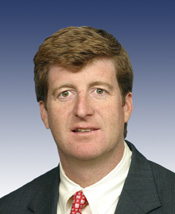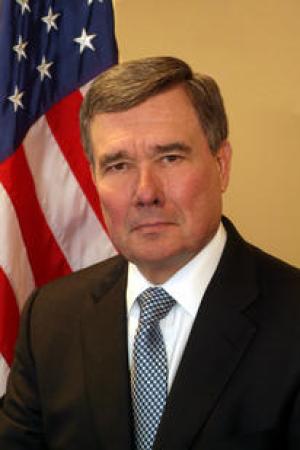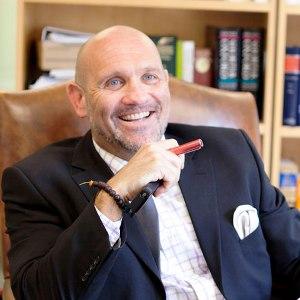Project SAM has emerged as a "third way" effort to blunt progress toward marijuana legalization by emphasizing public health and treatment. Its leaders include a conservative columnist, an addiction-plagued ex-congressman, and a professional neo-prohibitionist.
New York Gov. Andrew Cuomo has reiterated his call for marijuana reforms, telling the legislature it needs to pass a bill that decriminalizes public as well as private possession of small amounts of marijuana.
The DEA was back at it raiding dispensaries again in Los Angeles Wednesday.
Oakland's Harborside medical marijuana dispensary won a victory in federal court Monday, but more battles loom.
MedicalMarijuana.ProCon.org, part of the ProCon.org family, is an in-depth web site presenting information and views from a variety of perspectives on the medical marijuana issue. The Chronicle is running a six-part series of info items from ProCon.org, of which this week's is the first.
The drug czar's rhetoric on marijuana legalization is shifting...
Montana caregivers continue to get sentenced in federal court, an Arizona lawmaker wants a redo on medical marijuana, an Illinois bill is delayed, and the back and forth continues in California.
Bolivia's bid to rejoin the UN Single Convention on Narcotic Drugs without accepting the treaty's proscription against coca leaf chewing appears to be set to happen, despite the objections of a handful of Western countries.
Singapore is easing up slightly, but only slightly, on the application of the death penalty for drug trafficking offenses.
Bermuda's new attorney general wants Parliament to take up the topic of marijuana law reform, but he's not quite ready to say it's time to legalize or decriminalize it.
Texas cop wanted cash to make a pot possession arrest go away, Hawaii cop had his own pot garden, Philly cop was peddling 'roids, and then there's the requisite prison guard.
The passage of marijuana legalization measures by voters in Colorado and Washington in November has sparked interest in marijuana policy like never before, and now it has sparked the formation of a new group dedicated to fighting a rearguard action to stop legalization from spreading further.

Patrick Kennedy (bioguide.congress.gov)
The group,
Smart Approaches to Marijuana (SAM or Project SAM) has among its "
leadership team" liberal former Rhode Island Democratic congressman and self-admitted
oxycodone and alcohol addict Patrick Kennedy and conservative commentator David
Frum. It also includes professional neo-prohibitionist Dr. Kevin
Sabet and a handful of medical researchers. It describes itself as a project of the Policy Solutions Lab, a Cambridge, Massachusetts, a drug policy consulting firm headed by
Sabet.
SAM emphasizes a public health approach to marijuana, but when it comes to
marijuana and the law, its prescriptions are a mix of the near-reasonable and the around-the-bend. Rational marijuana policy, SAM says, precludes relying "only on the criminal justice system to address people whose only crime is smoking or possessing a small amount of marijuana" and the group calls for small-time possession to be decriminalized, but "subject to a mandatory health screening an marijuana-education program." The SAM version of
decrim also includes referrals to treatment "if needed" and probation for up to a year "to prevent further drug use."
But it also calls for an end to NYPD-style "stop and frisk" busts and the
expungement of arrest records for marijuana possession. SAM calls for an end to mandatory minimum sentences for marijuana cultivation or distribution, but wants those offenses to remain "misdemeanors or felonies based on the amount possessed."
For now, SAM advocates a zero-tolerance approach to marijuana and driving, saying "driving with any amount of marijuana in one's system should be at least a misdemeanor" and should result in a "mandatory health assessment, marijuana education program, and referral to treatment or social services." If a scientifically-based impairment level is established, SAM calls for driving at or above that level to be at least a misdemeanor.
Less controversially, SAM advocates for increased emphasis on education and prevention. It also calls for early screening for marijuana use and limited intervention "for those who not progressed to full marijuana addiction."
For a taste of SAM's kinder, gentler, neo-prohibitionist rhetoric, David
Frum's Monday CNN column is instructive. "We don't want to lock people up for casual marijuana use -- or even stigmatize them with an arrest record," he writes. "But what we do want to do is send a clear message: Marijuana use is a bad choice."
Marijuana use may be okay for some "less vulnerable" people,
Frum writes, but we're not all as good at handling modern life as he is.
"But we need to recognize that modern life is becoming steadily more dangerous for people prone to make bad choices," he argues. "At a time when they need more help than ever to climb the ladder, marijuana legalization kicks them back down the ladder. The goal of public policy should not be to punish vulnerable kids for making life-wrecking mistakes. The goal of public policy should be to protect (to the extent we can) the vulnerable from making life-wrecking mistakes in the first place."
Marijuana legalization advocates are having none of it. And they level the charge of hypocrisy in particular at Kennedy, whose family made its fortune selling alcohol. The
Marijuana Policy Project (
MPP) has called on Kennedy to explain why he wants to keep "an objectively less harmful alternative to alcohol illegal" and has created an
online petition calling on him to offer an explanation or resign as chairman of SAM.
"Former Congressman Kennedy's proposal is the definition of hypocrisy," said
MPP communications director Mason
Tvert. "He is living in part off of the fortune his family made by selling alcohol while leading a campaign that makes it seem like marijuana -- an objectively less harmful product -- is the greatest threat to public health. He personally should know better."
Nor did
Tvert think much of SAM's insistence that marijuana users need treatment.
"The proposal is on par with forcing every alcohol user into treatment at their own cost or at a cost to the state. In fact, it would be less logical because the science is clear that marijuana is far less toxic, less addictive, and less likely to be associated with acts of violence,"
Tvert said.
"If this group truly cares about public health, it should be providing the public with facts regarding the relative harms of marijuana and discouraging the use of the more harmful product,"
Tvert said. "Why on earth would they want keep a less harmful alternative to alcohol illegal? Former Congressman Kennedy and his organization should answer this question before calling on our government to start forcing people into treatment programs and throwing them into marijuana re-education camps."
Project SAM is out of step with current public opinion, said
NORML executive director Allen St. Pierre.
"There really aren’t that many people publicly opposing marijuana law reform these days," St. Pierre noted. "The fact that a liberal like Patrick Kennedy is joining with a conservative like David
Frum speaks to a mainstream disconnect. Both these guys are seen as mainstream, but three-quarters of the population support medical marijuana and decriminalization, half the country supports legalization, and we know that in two states, 55% voted for legalization. I can't speak to why they're so politically tone deaf."
"Kevin
Sabet recognizes the old approach is just done for -- just saying marijuana turns you into an addict is no longer working,"
MPP's Tvert told the Chronicle. "This is a thinly veiled attempt to maintain marijuana prohibition by appealing to the sensibilities of people who recognize it’s a failure. They are clutching at straws. If they truly think people shouldn’t have their lives ruined for marijuana, they shouldn’t be proposing it be kept illegal."
"We are well past the epoch of the A.M.
Rosenthals and the Joe
Califanos," said St. Pierre, referring to ardent drug warriors of yore. "The mainstream media has moved away from the type of Reefer Madness that
Frum and Kennedy are trying to engage in," he said. "Their advocacy is based on Kevin
Sabet's rhetoric, and it's an extension of a failed policy. They're trying to buy time and delay marijuana law reform."
The political terrain has undergone a seismic shift with the November election results, and the rhetorical terrain has been shifting (reality not so much) away from drug war talk under the Obama administration. Now, Project SAM can join drug czar
Kerlikowske is hoping talking more gently can thwart the progress of marijuana legalization.
back to top
In his State of the State address Wednesday, New York Gov. Andrew Cuomo (D) called on the legislature to reform the state's marijuana laws. Marijuana possession has been decriminalized in the state since 1977, but New York City has emerged as the nation's marijuana arrest capitol because the NYPD habitually charges small-time offenders with "open view" possession -- a misdemeanor -- after intimidating them into pulling their baggies out of their pockets.

Andrew Cuomo
More than 600,000 people have been arrested for pot possession in New York in the past 15 years, most of them in New York City. The NYPD arrested some 50,000 people for "open view" possession in 2011 alone, 85% of them black or brown, mostly young men.
Cuomo attempted to push forward a reform bill last year, but that effort was stalled in the state Senate despite being supported by NYPD Commissioner Raymond Kelley, all five New York City prosecutors, and numerous others.
Cuomo noted the discrepancy in the law between public and private possession and called on
solons to enact legislation to decriminalize the possession of up to 15 grams of pot in either private or public. The governor cited the negative impacts of mass marijuana arrests, including
criminalization, stigmatization, wasted resources, and racial disparities.
"It's not fair, it's not right. It must end, and it must end now," he demanded.
Mass marijuana arrests are "not worth it in dollars, in stigma or in impact. In order to fix the inequity in the law while still recognizing that possession in public is different from possession in one's home, the Governor will propose legislation that makes 'open view' possession of marijuana in amounts of 15 grams or less a violation punishable by a fine," he said in
prepared remarks.
That's what drug reformers, community activists, and civil liberties and racial justice activists wanted to hear.
"We cannot have the same laws applied differently to different groups of people when the dividing line is race," said Gabriel
Sayegh, New York state director for the
Drug Policy Alliance. "The governor’s proposal is an essential step towards bringing greater fairness and equity to both our drug laws and policing practices in our state. The
criminalization of our young people must end -- the legislature must now act now to pass the governor’s bill."
"I hope [Republican conference leader] Senator
Skelos and the entire legislature heard Governor Cuomo loud and clear when he said it's time to end marijuana arrests that 'stigmatize and criminalize' young people of color, which have been one of the leading consequences of stop and frisk," said Alfredo
Carrasquillo, a civil rights organizer for
VOCAL-NY. "Governor Cuomo is right that these arrests mean more than a night in jail -- they can have lasting effects on a person's access to jobs, housing and a better future."
"With stop and frisk and needless
criminalization, too many of our young people are swept up in the criminal justice system. Governor Cuomo’s reform proposal is a critical step towards a brighter future for our youth," said
Kyung Ji Kate
Rhee of the
Center for NuLeadership. "Instead of wasting money on these arrests, we should be investing in community development and resources that are far more effective at guiding our youth in the choices they make towards fulfilling their best potential."
Now, let's see if the legislature is listening.
back to top
DEA agents raided three Los Angeles medical marijuana dispensaries Wednesday afternoon, according to a preliminary report from Americans for Safe Access California director Don Duncan. More details were not forthcoming by press time.
According to Duncan, the DEA struck LA Wonderland on West Pico Boulevard, the Downtown Collective on South Hill St. near downtown, and the Iron Works in Venice.
The federal government has unleashed the DEA on dispensaries under both the Bush and the Obama administrations, although there was a respite between 2009 and late 2011, when the Justice Department had a policy of generally leaving them alone. But that policy shifted again in 2011, and both the DEA and federal prosecutors have been busy going after dispensaries since then. One Southern California dispensary operator, Aaron Sandusky, was sentenced to 10 years in federal prison just this Monday.
The policy has not been limited to California. While hundreds of California dispensaries have been forced out of business by raids, asset forfeiture threats and/or prosecutions, so have dozens of dispensaries in Colorado, and a series of statewide raids in Montana in the spring of 2011 virtually wiped out that state's dispensary scene.
The LA DEA raids come as the city grapples over what to do about dispensaries. An effort by the city council to shut them all down was blocked by popular opposition. Now, the council, and perhaps city voters, will have to consider two different municipal initiatives, one of which would limit the number of dispensaries in the city to about 100, the other of which would allow most existing dispensaries to stay open.
back to top
A federal magistrate in Oakland Monday ruled that landlords for the Harborside Health Center cannot stop it from selling medical marijuana in their properties in the cities of Oakland and San Jose. Federal Magistrate Maria-Elena James issued an order blocking the landlords from forcing Harborside to close its doors.
Harborside is the world's largest medical marijuana dispensary, serving 108,000 registered patients at its two locations. It was targeted by federal prosecutors as part of their ongoing crackdown on medical marijuana providers in states where it is legal.
Federal prosecutors targeted
Harborside by threatening its landlords with seizure of their properties. In a bid to fend off asset forfeiture actions, the two landlords went to federal court to try to stop
Harborside from engaging in "any unlawful activity," which, under federal law, includes selling medical marijuana.
But Magistrate James ruled that the landlords had no right to pursue such an action under federal law and she challenged the landlords' claims that their property values would be harmed by the sale of medical marijuana.
Harborside has operated at the Oakland property since 2006 and in San Jose since 2009.
"Any damage or threat of harm to the (properties) resulting from
Harborside's operations would have occurred when
Harborside began its operations at the Oakland and San Jose locations," she wrote. "There is nothing in the record indicating that
Harborside's continued operation compromises the existence, value or title of either the Oakland or San Jose property. Any argument about the urgency of stopping
Harborside's activities rings hollow."
Harborside was joined in court by the city of Oakland, which argued that the federal government has missed the statute of limitations in the case and that closing
Harborside would create a public safety risk by creating a black market for formerly available medical marijuana. The court did not rule on the city's motion to immediately enjoin the federal government from shutting down
Harborside, but set a date for more hearings on that issue.
"We are grateful that Judge James carefully considered the facts and arguments in the
Harborside case, and decided to grant us our day in court," said
Harborside executive director Steve
DeAngelo. "We have always believed that a Bay Area jury will recognize the value that
Harborside brings to the community, and refuse to allow the federal government to seize the properties where we are located. We look forward to proving our case in front of a jury, and continue to believe we will prevail. In the meantime, we ask the Department of Justice to immediately freeze enforcement actions against
Harborside and any other cannabis providers acting in full compliance with state law. Our nation's law enforcement officers should concentrate on real crime."
Harborside isn't out of the legal woods yet, though. The federal effort to shut it down remains alive, even though the dispensary won this skirmish. It has stated repeatedly that it will fight the battle to the end, and on that score, at least, nothing has changed.
"We are gratified that Judge James listened to and analyzed the parties' arguments so thoroughly and has now rendered an opinion that will ensure
Harborside has the right to present its case to a jury," said
Harborside attorney Henry
Wysocki. "Despite the government's efforts to shortcut the case,
Harborside will now be able to fully defend itself at trial. That is all we had asked, and the court has now agreed. The stage is now set for a jury trial on the underlying issues of the litigation, which will probably take place in about one year."
back to top
Did you know there were 105 peer-reviewed medical studies involving cannabis and cannabis extracts between 1990 and 2012? Read the details at 105 Peer-Reviewed Studies on Marijuana -- Medical Studies Involving Cannabis and Cannabis Extracts (1990 - 2012), on the web site medicalmarijuana.procon.org, part of the ProCon.org family.
This is the first in a six-part series of ProCon.org teasers being published in Drug War Chronicle. Keep tuning in to the Chronicle for more important facts from ProCon.org the next several weeks, or sign up for ProCon.org's email list or RSS feed.
ProCon.org is a web site promoting critical thinking, education, and informed citizenship by presenting controversial issues in a straightforward, nonpartisan primarily pro-con format.

back to top
Office of National Drug Control Policy (ONDCP -- the drug czar's office) head Gil Kerlikowske said Tuesday that the country is "in the midst of a serious national conversation about marijuana" -- an at least rhetorical advance from his 2009 position that marijuana legalization is "not in the president's vocabulary and not in mine."

Gil Kerlikowske
terse comments on the topic came in
response to three marijuana legalization petitions posted on the White House's We the People web site, which promises to respond to any petition that garners more than 25,000 signatures. The three had a combined signature total of more than 173,000.
But they also come in a political context altered by last November's elections, when two states, Colorado and Washington, easily approved marijuana legalization initiatives. The use and possession of small amounts of marijuana by adults over 21 is now legal in both states, and officials in both are now grappling with the task of coming up with and implementing regulations for legal marijuana commerce. The federal government has yet to respond substantively as to whether or not it will seek to impede that process.
"Coming out of the recent election, it is clear that we're in the midst of a serious national conversation about marijuana," said
Kerliwowske. "At President Obama's request, the Justice Department is reviewing the legalization initiatives passed in Colorado and Washington, given differences between state and federal law."
That was the extent of
Kerlikowske's response, except for referring readers to a recent Barbara Walters interview with President Obama in which he said he wasn't ready "to go that far" when it came to the topic of pot legalization, but added that "we're going to need to have is a conversation about how do you reconcile a federal law that still says marijuana is a federal offense and state laws that say that it's legal."
The rhetorical shift was "pretty significant," said Tom
Angell, chairman of
Marijuana Majority, a recently-formed group calling for decriminalization or legalization.
"I guess it makes a difference when marijuana legalization gets more votes than your boss does in an important swing state, as happened in Colorado this last election,"
Angell said. "From 'legalization is not in my vocabulary and it's not in the president's,' as Gil
Kerlikowske often used to say, to 'it is clear that we're in the midst of a serious national conversation about marijuana' is a pretty stark shift."
Actions speak louder than words,
Angell said, but still…
"Of course, what really matters is to what extent the administration actually shifts enforcement priorities and budgets, but I sure do like hearing the US drug czar acknowledge the fact that marijuana legalization is a mainstream discussion that is happening whether he likes it or not."
back to top
Montana caregivers continue to get sentenced in federal court, an Arizona lawmaker wants a redo on medical marijuana, an Illinois bill is delayed, and the DEA gets busy in California. Let's get to it:
Arizona
Last Thursday,
a state lawmaker filed a bill to put medical marijuana back before the voters. Rep. John
Kavanaugh (R-Fountain Hills) pre-filed House Concurrent Resolution 2003, which would put the issue on the November 2014 ballot.
Kavanaugh opposes the state's medical marijuana law and hopes voters will, too. The measure must be approved by the legislature, but does not need the governor's signature.
California
Last Thursday,
a Santa Barbara man said he was being evicted from his apartment for smoking medical marijuana. James
Cerda, 64, said the Santa Barbara Housing Authority recently imposed new no-smoking rules in his complex and that he had received an eviction notice because of his medical marijuana use.
Cerda added that he had lived in the complex for 10 years and that housing officials had known for years that he was a medical marijuana patient.
Last Wednesday,
the Los Angeles city clerk announced that an initiative that would reduce the number of dispensaries had gathered the required signatures to go before the voters. The "Medical Marijuana Collectives Initiative Ordinance" would allow about 100 dispensaries to remain open in the city. The initiative now goes to the city council, which can adopt it, call a special election, or place it on the May 21 general election ballot. Another group has submitted a separate initiative that would allow many more dispensaries to stay open. The city clerk is counting those signatures now to see if it, too, will qualify.
Last Friday,
a group of dispensaries sued the city of Long Beach, charging it and its police department used illegal methods to run them out of business. The lead plaintiff, the Green Earth Center, claims police used "warrantless" raids and other illegal tactics. The lawsuit also names five Long Beach police officers and seeks an injunction and damages for alleged civil rights violations. More than a half dozen dispensaries were raided after a citywide ban on them took effect.
On Monday,
former Upland dispensary operator Aaron Sandusky was sentenced to 10 years in federal prison. Sandusky had operated
G3 Holistic in Upland, Colton, and Moreno Valley, and was convicted in October of two counts of violating federal marijuana law, one for conspiracy to manufacture marijuana plants, possession with intent to distribute marijuana plants, and to maintain a drug-involved premises, as well as a second count of distributing marijuana plants.
Also on Monday,
a federal magistrate in Oakland allowed the Harborside dispensary to remain open while it fights federal government efforts to shut it down. Citing threat of seizure of their properties by the federal government,
Harborside's Oakland and San Jose landlords had sought to force it stop selling medical marijuana. The federal magistrate ruled that it is up to the federal government, not the landlords, to shut down
Harborside for violating the Controlled Substances Act.
Also on Monday,
drug czar Gil Kerlikowske slammed medical marijuana during a gathering of law enforcement officials in San Francisco. "Medicinal marijuana has never been through the FDA process," he said. "We have the world’s most renowned process to decide what is medicine and what should go in peoples’ bodies. And marijuana has never been through that process."
On Tuesday,
Mendocino County supervisors approved a change to their medical marijuana ordinance to clarify that " all information received by and/or generated by the operation of Chapter 9.31 has always been intended to be treated and held by the County of Mendocino as confidential information to the fullest extent authorized by California and Federal law from 2008 to the present as well as prospectively." The move comes in response to a broad federal subpoena seeking information on the county's medical marijuana program, which the county is contesting.
On Wednesday,
the DEA raided three Los Angeles dispensaries, according to preliminary reports.
Illinois
Last Thursday,
the state legislature adjourned without addressing a medical marijuana bill. But a new session starts this week, and the bill will be reintroduced. After the November elections, Democrats now hold super-majorities in both houses, which should help the process along.
Montana
On December 28,
a Helena man was sentenced to a year in federal prison for growing medical marijuana. Paul Roy Schmidt, 57, had operators Sleeping Giant Caregivers, which was raided during the federal crackdown in the spring of 2011. He was in compliance with state medical marijuana laws. He had faced a mandatory minimum five-year prison sentence, but was granted a downward departure at sentencing. He was also fined $750,000.
Last Friday,
medical marijuana provider Chris Lindsay was sentenced to five years federal probation for his role in Montana Cannabis dispensary, which had locations across the state. It, too, was busted during the 2011 federal crackdown. Lindsey said he would remain head of the Montana Cannabis Industry Association, but he must forfeit $288,000 in bank accounts held under the name of the Montana Caregivers Association. Lobbyist Tom
Daubert, another partner in Montana Cannabis, previously was sentenced to probation. Partner Richard
Flor of Miles City died in federal custody in August. Partner Chris Williams, the only Montana Cannabis member to go to trial, was convicted and faces a mandatory minimum five-year sentence when sentenced on February 1.
back to top
Five Western countries -- the US, Canada, Britain, Italy, and Sweden -- have formally objected to Bolivia's rejoining the 1961 UN Single Convention on Narcotic Drugs with a reservation that allows for the traditional habit of coca leaf chewing, the Transnational Institute reported last Friday. The move is the latest twist in the Latin American nation's effort to remove the international proscription on the ancestral habit.

coca plant (UNODC)
But the Western objections are far from sufficient. Another 58 signatory countries would have to object by next week to block Bolivia's bid, and there is little sign of that happening.
[Update: On Wednesday, Russian President Vladimir Putin submiltted a bill to the Duma objecting to Bolivia's reservation, but it wasn't clear if that amounted to a formal objection.]
Coca leaf, the raw material from which cocaine is produced, has been used with little ill effect as a hunger-suppressant and mild stimulant for thousands of years in South America's Andean region. It was included as a proscribed substance in the 1961 Convention based on a 1950 study that has been found to be unscientific and
blatantly prejudiced. The 1961 Convention called for the chewing of coca leaf to be phased out by 1989.
Led by former coca grower union leader
Evo Morales, Bolivia tried in 2011 to amend the 1961 Single Convention to remove the provision requiring it to ban coca leaf chewing. If no countries objected, the request would have been automatically granted, but the US, supported by the
International Narcotics Control Board organized a "friends of the convention" group to rally against the move. In all,
18 countries objected to Bolivia's request.
Among Latin American countries, only Mexico's conservative government objected. Colombia objected at first, but withdrew its objection, while Costa Rica, Ecuador, Uruguay, and Venezuela went on record supporting Bolivia's request even though they weren't required to. The objecting countries were all European, except for Canada and the US and Japan and Singapore.
Following the failure of its effort to amend the 1961 Convention, Bolivia withdrew from it and requested re-accession with a reservation regarding the coca chewing provision. The Convention allows for such a procedure, which can be blocked only if one-third of the member states object. There are 184 countries that have signed the Convention, meaning 62 must object to stop Bolivia's re-accession.
So far, just a few have done so. Other countries have only until January 10 to weigh in.
back to top
Drug traffickers and other death row inmates in Singapore can now seek review of their death sentences after changes to the island city-state's mandatory death sentence went into effect with the new year, the anti-death penalty group Hands Off Cain reported. Some 32 people whose appeals had already ended sit on death row there; it is unclear how many are drug traffickers.

the gallows (wikimedia.org)
Last month, amendments to the Penal Code, Criminal Procedure Code, and Misuse of Drugs Act were approved that allow death row prisoners to introduce new evidence to show that their cases satisfy the conditions for a life sentence instead of death.
Before that, murder and drug trafficking above certain amounts garnered mandatory death sentences. Now, drug trafficking convicts who were only couriers and who cooperated substantially with authorities can seek review of their death sentences, as can people convicted of murder, unless that killing was the equivalent of first-degree murder in the US.
Under Singapore law, people sentenced to life in prison can seek review of their sentences after serving 20 years.
According to Harm Reduction International's
Death Penalty Project, Singapore is one of a group of six "high application states," or countries that both have the death penalty on the books for drug offenses and actually impose it. The others are China, Iran, Malaysia, Saudi Arabia, and Vietnam.
back to top
Newly appointed Bermuda Attorney General Mark Pettingill is calling for a debate about reforming the island nation's marijuana laws. But he has stopped short of advocating any particular change, instead merely saying it is time for a discussion.

Bermuda Attorney General Mark Pettingill (charterchambers.bm)
, who took office after elections last month, had previously called in Parliament for the country to "get real" when it comes to acknowledging that marijuana smoking is as popular as drinking alcohol. But he told the
Royal Gazette that didn't mean he was advocating legalization or even decriminalization.
"When I say 'get real' that doesn't necessarily mean making fundamental changes but we have to have some review of the legal position as it relates particularly to marijuana," the attorney general said, noting that current policy calls for warnings for small-time pot possession, but that that is not enshrined in law. "This is really turning a blind eye rather than legalizing it, and having things defined in law is good -- otherwise you can ask why is one person being prosecuted and someone else not."
When the Gazette pressed
Pettingill, he spoke like the practicing attorney he has been for the past two decades, saying he could "argue both ends."
He then reiterated his call for a debate in Parliament. "I think the view is that we need to have a fully-fledged Parliamentary debate as it relates to the issue."
While
calls for marijuana reform have been coming out of Bermuda for years and while
Pettingill said warnings were the norm, Bermuda has also in recent years earned a reputation for harsh treatment of visiting tourists caught with small amounts of marijuana, including
a case from 2010 and
another from 2011. In the latter case, a visiting American medical marijuana patient was fined $2,000 for possession of three grams.
back to top
Texas cop wanted cash to make a pot possession arrest go away, Hawaii cop had his own pot garden, Philly cop was peddling 'roids, and then there's the requisite prison guard. Let's get to it:
In San Antonio, Texas,
a San Antonio police officer was arrested last Thursday for taking $500 from a man he arrested with marijuana to make the charges go away. Officer Curtis
Lundy, 36, went down in a sting after the man he had arrested contacted the FBI. Under FBI supervision, the man then recorded cell phone calls with
Lundy in which the pair made arrangements to meet for the payment, and when he arrived in his marked squad car, surveillance teams watched him collect an envelope containing the $500 from the man. He was charged with theft of honest services by wire fraud and if convicted, face faces up to 20 years in federal prison and a maximum $250,000 fine. For now,
Lundy is in on administrative leave with pay. He was released on a personal recognizance bond last Friday.
In Philadelphia,
a former Philadelphia police officer was sentenced last Monday to four years in federal prison for running an illicit steroid and human growth hormone distribution ring. Keith
Gidelson, 36, pleaded guilty to conspiracy to distribute anabolic steroids after prosecutors charged he purchased monthly shipments from suppliers in Europe and China, which he would then repackage and sell in area fitness clubs and out of his home.
Gidelson was taken into custody immediately to begin serving his sentence. Two other former Philly cops have also pleaded guilty in the case and await sentencing.
In Monterey, California,
a former state prison guard was sentenced last Wednesday to six years in state prison for smuggling drugs and cell phones to inmates in return for cash. Former guard Jose Fuentes had worked at the Correctional Training Facility State Prison in Soledad, where the court found he had systematically smuggled the items into the prison over a two-year period. He was convicted of bribery.
In Honolulu, Hawaii,
a former Honolulu police officer was sentenced last Thursday to eight months in jail for growing marijuana with his girlfriend. Michael Steven Chu has until February 13 to turn himself in. Chu had pleaded guilty to conspiracy to grow and possess marijuana after DEA agents arrested him last April and found two separate residential marijuana grows, as well as a pound of pot in his vehicle. The girlfriend gets sentenced next month.
back to top










